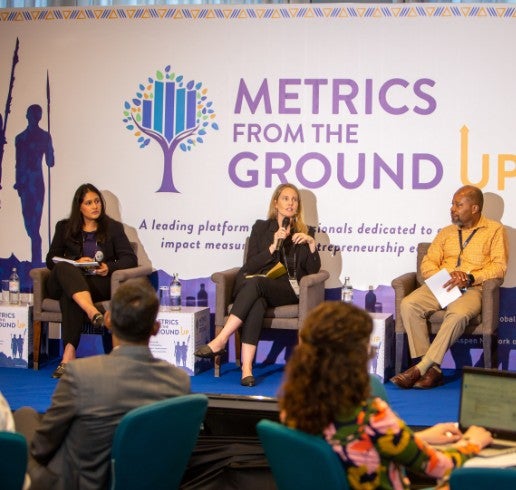
ANDE’s Nairobi Metrics from the Ground Up Conference united global impact leaders to reimagine how metrics drive inclusive, effective support for small and growing businesses.
Insights and Momentum from ANDE’s Metrics from the Ground Up Conference 2025
The 2025 Metrics from the Ground Up Conference concluded in Nairobi, Kenya, after three days of reflection, learning, and collaboration. The annual gathering convened practitioners, funders, entrepreneurs, and thought leaders committed to strengthening the small and growing business (SGB) ecosystem through inclusive and effective impact measurement. With deep-dive sessions, practical workshops, and rich networking opportunities, the conference continues to serve as a cornerstone for the global impact measurement and management (IMM) community.
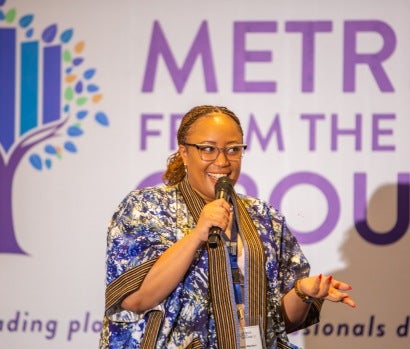 Day 1: Setting the Stage for Impact
Day 1: Setting the Stage for Impact
The opening day set a powerful tone with a high-level panel discussion featuring representatives from Dalberg, Genesis Analytics, and Tangaza University. The session explored the evolving role of Impact Measurement and Management (IMM) in shaping policy, emphasizing how robust evidence can inform decision-making at both local and systemic levels. This discussion set the tone for the conference by underscoring the importance of alignment between evidence generation, funding practices, and locally grounded leadership in the IMM space as well as embedding impact measurement into everyday practice. Interactive workshops and thematic breakout sessions challenged attendees to reflect on what “impact” truly means and how to measure it in a way that reflects lived realities.
Participants explored practical frameworks to support SGB performance and growth, including new approaches to gender lens measurement, circularity metrics, and sustainability practices. Global Impact Investing Network (GIIN) introduced its latest IRIS+ theme focused on waste and circularity. Other sessions featured culturally responsive mixed-methods data collection and participatory evaluation tools, with insights from organizations including Palladium, Swisscontact, 60 Decibels, and Villgro Africa.
Speakers emphasized the need to move beyond metrics as abstract numbers—toward approaches that are structured, context-sensitive, and grounded in field experience. The day concluded with a networking reception to foster new connections.
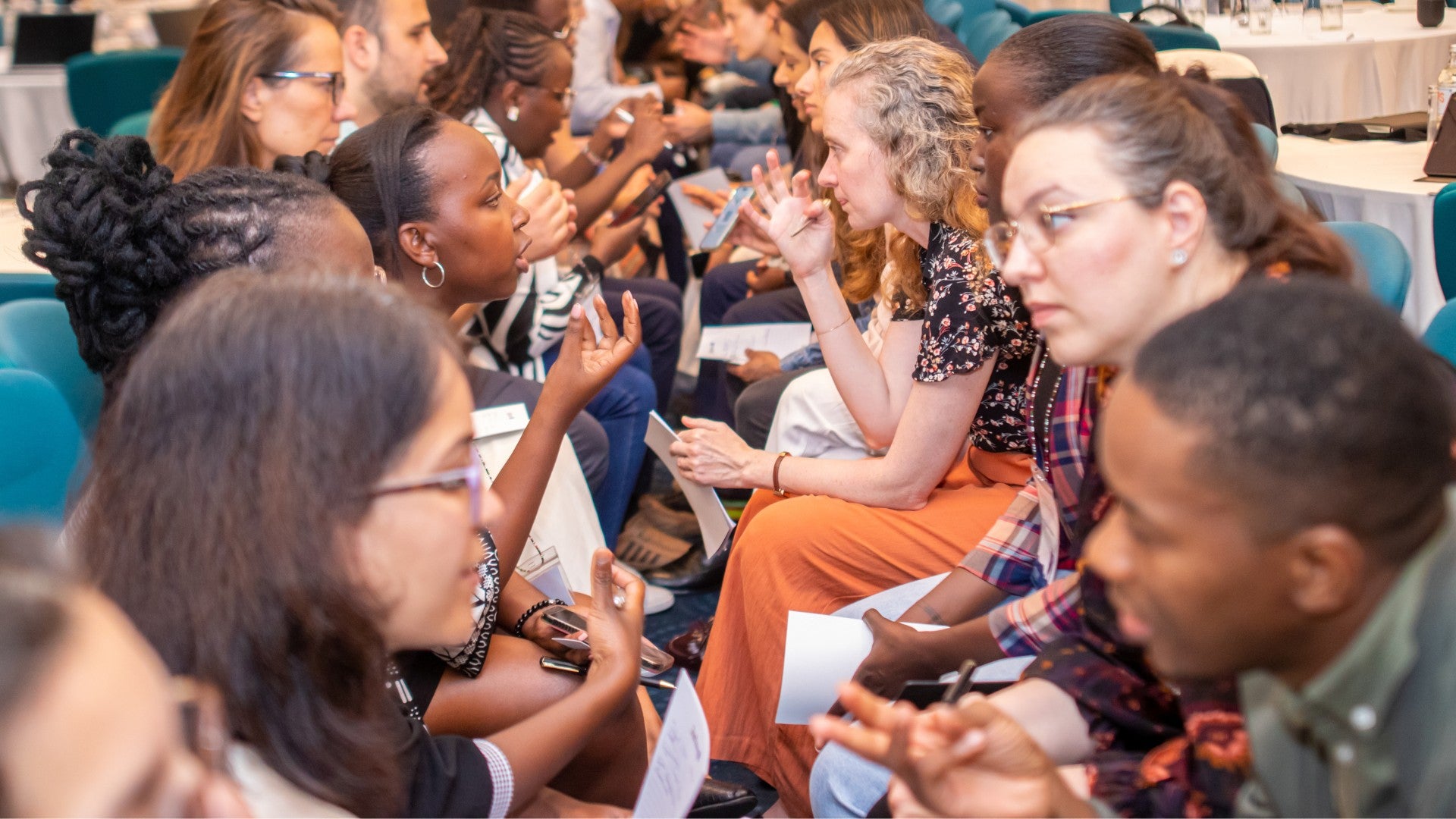
Day 2: Ecosystem Thinking and Ground-Level Voices
Day two shifted the focus from isolated metrics to system-wide collaboration. A dynamic speed networking session kicked off the day, followed by the debut of the “Metrics Fishbowl,” a collaborative problem-solving session where randomly assigned groups tackled real-world IMM challenges submitted by the audience. Sessions like these will remain a feature at future ANDE events to deepen peer learning.
Throughout the day, sessions explored how to measure circular systems, broaden the definition and use of Social Return on Investment (SROI), and incorporate indirect impact into evaluation frameworks. A recurring theme emerged: impactful measurement requires ecosystem-wide coordination and co-created frameworks that transcend organizational boundaries.
One of the most resonant takeaways came from those closest to the field: effective impact measurement begins with listening. Enterprises and local actors must help shape the indicators that define their progress. These stories—of resilience, innovation, and growth—go far beyond data points.
This theme carried into the closing panel, moderated by GIIN’s Panagiota Balfousia, with four speakers representing grantees from ANDE’s Access to Green Finance project, funded by the IKEA Foundation. The panel explored emerging trends in measurement, especially within the waste and circularity space.
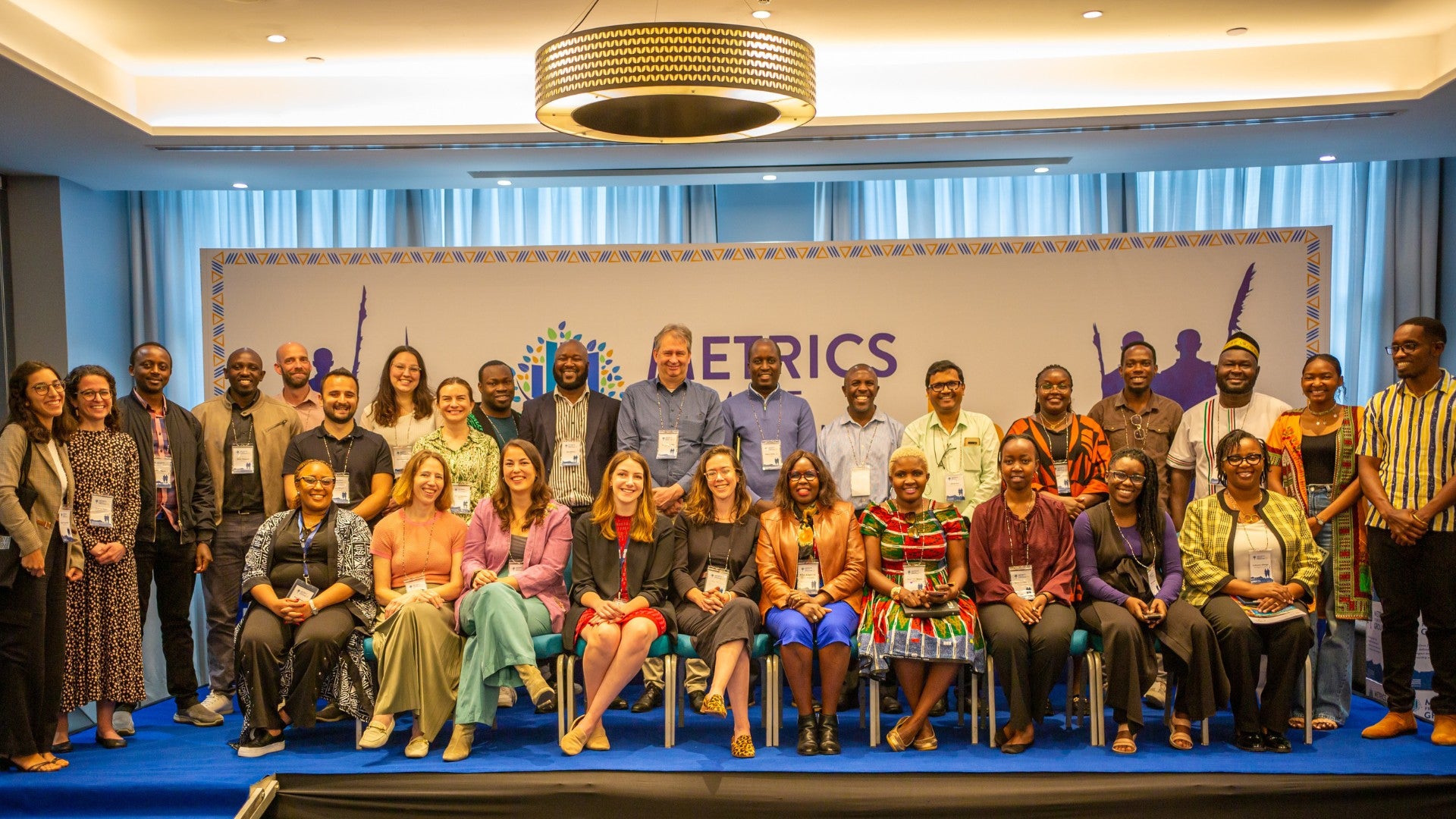
Day 3: Measuring Climate and Environmental Impact
The final day focused on environmental sustainability and climate resilience. Sessions addressed waste management, data-driven policy influence, and the measurement of green energy impact. Organizations including Solar Sister, WRI, and Root Capital shared field insights and tools.
Participants explored the importance of culturally responsive, qualitative methods that can better reflect long-term and systemic outcomes—particularly in the context of climate adaptation. A standout session on refining climate resilience measurement approaches—grounded in recent field evaluations and climate finance models—offered practical guidance for building more effective and equitable impact systems.
Key Takeaways
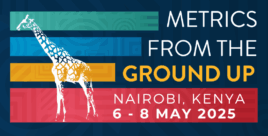
Impact Measurement Must Be Integrated
Embedding metrics into everyday decisions is vital for supporting SGBs effectively. Emerging tools—including those powered by AI—can streamline data collection and strengthen routine use of metrics.
Ecosystem Collaboration Is Essential
The sector must move beyond siloed tools toward co-developed, standardized frameworks that balance comparability with contextual nuance.
Center Local Voices
Ground-level perspectives should shape how we define and measure success. Techniques like culturally responsive evaluation are critical for inclusive and accurate assessments.
Beyond the Numbers
Impact measurement must capture context, narrative, and experience—not just outputs. More nuanced methods and longer timelines may be required.
Climate Measurement Demands Innovation
Robust and locally relevant metrics are necessary to assess long-term environmental and climate outcomes, particularly in communities most affected by the climate crisis.
The Way Forward
This year’s conference reaffirmed the IMM community’s commitment to collaboration, inclusion, and continuous learning. Aligning tools with the needs of SGBs and the systems they operate within will be essential to driving sustainable, scalable impact.
The energy and momentum from Nairobi make it clear: this is more than a technical challenge—it’s a shared mission. Continued experimentation, knowledge-sharing, and partnership will define the road ahead.
Metrics from the Ground Up is not just a conference—it’s a movement to advance impact measurement that is rigorous, responsive, and rooted in community. We extend our deep thanks to the participants, speakers, and partners who helped bring this vision to life.
For questions about the conference or ANDE’s broader IMM work, contact Mallory St. Claire, Impact Manager, at mallory.stclaire@aspeninstitute.org.
We are especially grateful to Builders Vision and the IKEA Foundation for their generous support, which made this convening possible and helped bring together a global community focused on driving meaningful change.
